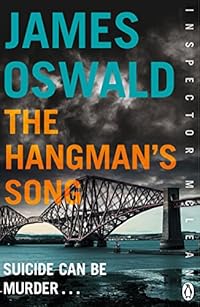
The Dark Remains by William McIlvanney and Ian Rankin was published in 2021. William McIlvanney died in 2015, this book features the character DC Laidlaw in his first case. The earlier books earned McIlvanney the title ‘father of Tartan Noir’, but this book was unfinished on his death so Ian Rankin completed it.
The setting is of course Glasgow, it’s 1972 and gang warfare is a way of life for some people. When the body of a tame lawyer with links to a gang is discovered in a lane behind a pub in a rival gang’s area it looks like a simple case to solve as far as DI Milligan is concerned and he has already decided the outcome of the case. The young Laidlaw is starting off his career as he continued it, being a thorn in the flesh of whomever happens to be his boss. The investigation takes place over six days.
I believe that the manuscript was discovered by McIlvanney’s wife after he had died and it was only half completed, so Rankin wrote on from midway. I read the original Laidlaw books way back in the 1970s when they were first published but haven’t read them since then. I enjoyed the atmosphere of 1970s Glasgow, I was a teenager back then and Glasgow was my destination a couple of times every week, but I wasn’t completely grabbed by the plot of this book and it’s very male-heavy character wise, but I suppose that is very true to the times, the females are wives or girlfriends. Thank goodness nowadays we can have Siobhans!

